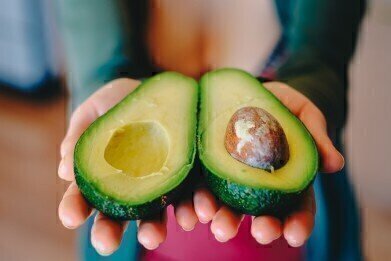Environmental Laboratory
Could Climate Change Spell the End for Avocados?
Jun 07 2018
As the clamour surrounding climate change continues to heat up, so too does our planet. Indeed, by some estimates, temperatures could climb an astonishing 2.38°C by 2050. That hike in the thermometer mercury could not only have devastating effects on polar ice caps and rising sea levels, it also could also have a profound effect on agriculture, including temperature-sensitive crops like avocados.
Not too hot, not too cold
In order for avocado trees to flourish, they need stable temperatures of between -2°C and 38°C; any higher or lower, and the plant will suffer. What’s more, one can easily impact the other. In prolonged periods of freezing weather, limbs can die off. This removes the foliage that is so necessary to shield the fruit from the sun’s rays, meaning extremes of temperature at either end of the scale can spell the end for avocados.
This year, for example, one Californian farm lost one in every 20 avocados due to the irregularities of the season. After a relatively mild winter, the mercury plunged below zero for just three hours in February – but that was enough to kill off limbs. Then, when the sun scorched the exposed fruit later on, the avocados ended up burnt and were essentially useless. However, things could have been much worse; one degree hotter or colder could have had even more serious ramifications for the yield.
Playing the long game
Farming crops which require a serious long-term investment, such as avocados, is something of a risky business with the world’s climate in its current precarious state. Whereas planting fruits like strawberries or herbs like coriander only operate in yearly cycles, avocados require much longer-term stability. As it’s nigh on impossible to predict how our planet will took decades from now, climate change could mean that these kinds of foodstuffs disappear from our supermarkets and our diets altogether.
In fact, a 2006 report estimated that the consequences of global warming could be so severe as to slash the avocado output of the state of California by 50% by 2050. Although the US is not one of the top five producers of avocados worldwide, the 172,630,000 tonnes it produces annually is no trifling amount. Of course, avocados in other parts of the globe are likely to face similar challenges as well, so the avocado’s days could be numbered.
Planning for the future
One way to try and circumvent this avocalypse is through developing strains of the fruit which are resistant to extreme temperatures. Last year, the industry investigated year-round avocado crops using different strains of the fruit and it’s possible that something similar could be done to safeguard its longevity against rising temperatures. However, such a plan is little more than fumbling in the dark and may not produce the requisite results to keep the guacamole rolling.
A more prudent option would be try and limit the effects of climate change as much as possible. This can be achieved by bringing down our emissions of greenhouse gases (GHGs) as much as we can; efforts to curb our carbon footprint are already widespread and growing concerns about global methane emissions mean that the issue is at the forefront of public consciousness. Thought must be accompanied by action, however – otherwise, the humble avocado could soon be toast.
Digital Edition
IET 34.2 March 2024
April 2024
Gas Detection - Biogas batch fermentation system for laboratory use with automatic gas analysis in real time Water/Wastewater - Upcycling sensors for sustainable nature management - Prist...
View all digital editions
Events
Apr 22 2024 Hannover, Germany
Apr 22 2024 Marrakech, Morroco
Apr 23 2024 Kuala Lumpur, Malaysia
Apr 23 2024 Kintex, South Korea
Apr 23 2024 Edmonton, AB, Canada


















